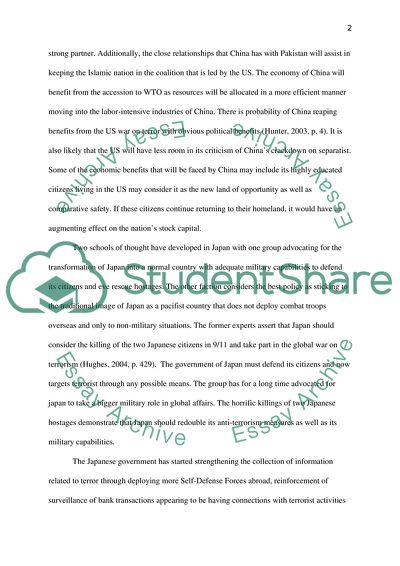Cite this document
(“How China and Japan reacted to the war on terror Essay”, n.d.)
How China and Japan reacted to the war on terror Essay. Retrieved from https://studentshare.org/social-science/1689522-how-china-and-japan-reacted-to-the-war-on-terror
How China and Japan reacted to the war on terror Essay. Retrieved from https://studentshare.org/social-science/1689522-how-china-and-japan-reacted-to-the-war-on-terror
(How China and Japan Reacted to the War on Terror Essay)
How China and Japan Reacted to the War on Terror Essay. https://studentshare.org/social-science/1689522-how-china-and-japan-reacted-to-the-war-on-terror.
How China and Japan Reacted to the War on Terror Essay. https://studentshare.org/social-science/1689522-how-china-and-japan-reacted-to-the-war-on-terror.
“How China and Japan Reacted to the War on Terror Essay”, n.d. https://studentshare.org/social-science/1689522-how-china-and-japan-reacted-to-the-war-on-terror.


